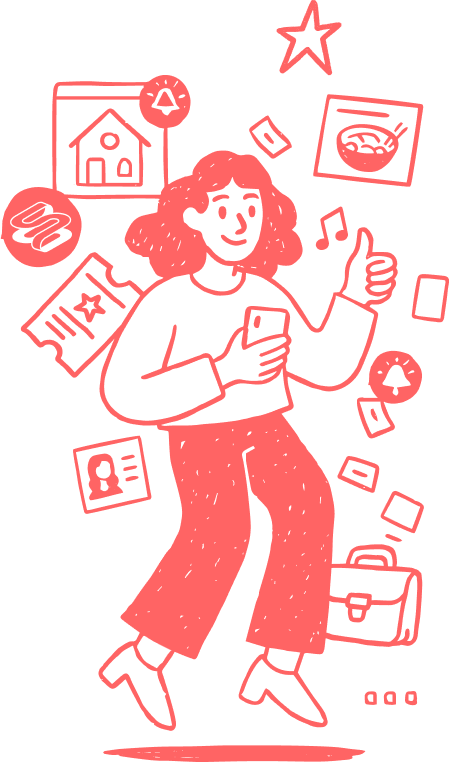. Illustration by Francine Yulo *** If you can offer your baby the best, why wouldn’t you? The problem is, the "best" -- of anything -- is subject to a few variables, the most obvious being financial, of course. Can you afford it? Availability is another huge factor. In many places around the world, options are just straight-up limited. If you live in Somalia, stuff as basic as baby car seats are in short supply. Over in Dhaka, maybe you can’t find organic oatmeal. Perhaps Venezuela has a shortage of 200 thread count, pure cotton bumper pads. So what happens to babies who don’t get the best? From Karachi to Mumbai, Rio to Wuhan, Southeast Asia to Cuba, I’ve traveled extensively through the "third world". One thing I noticed was that even within atrocious social, economic, environmental, and domestic conditions, babies still persevered. They find a way. Literally, if you’ve ever been to places like Vietnam, India, or Shanghai, it’s not uncommon to see a baby wedged between two siblings and their parents on the back of a scooter in heavy traffic, in the midst of exhaust fumes -- they're literally finding a way. My personal favorite is the classic, "baby sleeping in handcart while stacks of recycled refuse teeter daringly above". Now, admittedly, I’m sure the percentage of infant injury is much higher in the developing world, not to mention infant health and mortality issues in locations where access to proper health care and medicine is problematic. However, despite that, witnessing the circumstances of babies living and growing up in disparate cultures and situations has led me to realize two things: One: Risk is calculable. There are varying degrees of risk in pretty much anything we do. But when it comes to our babies, we often forget that, and simply assume everything from the sun to our furniture is out to destroy our children. Two: Babies aren’t pussies. Let's examine this. I once saw a baby on an elephant. He looked stoked (certainly no baby seat there). In Fiji, there was a baby sleeping in a cane field where the mother warned me of water snakes. His older brother, who was 11, was a sick surfer who was renowned in the village for his ability to catch sharks. Fucking SHARKS! Just consider some of the world’s largest populations. In places like India, China, and Pakistan -- where parenting and pedagogy is both old-school and ghetto -- they boast hundreds of millions to billions of people. And despite many of them not having car seats or getting some teched-out stroller, or sleeping in regulation cribs, hoards of babies are NOT exploding, and a vast majority of babies grow up relatively fine. Though your baby may look hella soft, he is in fact one tough bastard (well, hopefully not a bastard). Living in Shanghai, in some respects, is like living in the 1970s. People smoke everywhere. As I’m writing this, there’s a dude smoking a cigar, in my office. It’s pretty much impossible to avoid second-hand smoke. That means that every now and then, for a short period of time, my infant son is exposed to Dum Dum Duuummmmmm…. SECOND HAND SMOKE! Lord have mercy, I’ve ruined his life. His brief encounter with the war-crime of smoking has tainted his baby lungs forever. Except that… he’s probably fine. I’m not telling you to give your baby a pack of smokes for his first birthday, and of course we should always look to give out kids the best, but we should also let them tough it out a bit too. A greater exposure to bacteria can help build a better immune system. It can also reduce the risk of developing allergies, both environmental and dietary. Here in Shanghai, despite the pollution, I seldom hear of babies with respiratory problems. I’ve never once encountered a single person (adult or child) in my seven years in China who has food allergies. That’s boss! The same can be said for my time in Pakistan, India, and Brazil. I’ve also noticed a stronger sense of independence in kids from developing countries. Not as much here in China, cause the one-child policy has resulted in some spoiled-ass youth. But in Pakistani ghettos and Rio’s favelas, kids are straight-up tough. I once bought herb off a 10 year old in Rio (not proud of that, mostly cause I got a shitty count). But that maturity comes primarily from a lack of life options, and the necessity to survive. You pretty much have to grow up fast when survival becomes a day-to-day task. That’s a different world (at least for many of our readers), and I’m certainly not telling you to rob your baby of a childhood. But perhaps we can Buddha-up our parenting, and seek the middle path. Maybe realize that our babies will probably be fine in the face of a few difficulties, and even if he can’t get the best, a lot of other kids have it a lot worse. And don’t judge your other parent-friends (I know it’s tempting) if they don’t have a car-seat, or don’t use anti-bacterial soap on their bottles before putting them in the sterilizer, or if they use pillows as bumper pads, or their crib mattress is a bit too soft, cause you know what, all over the world, literally millions of kids are toughing it out on some grimey-ass shit, and a vast vast vast vast majority of them are growing up just fine. Big Up The 3rd World!
Sponsored By:













